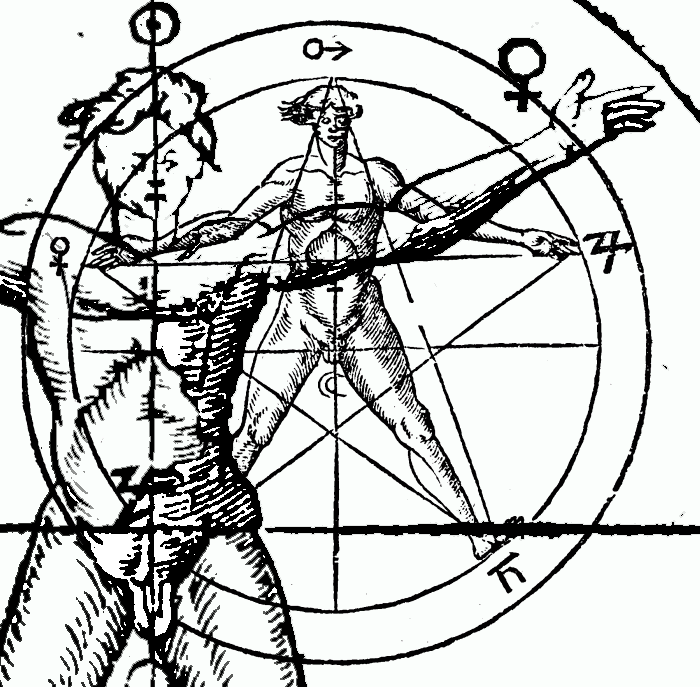
Agrippa von Nettesheim Archivi Edizioni Grenelle
Agrippa Von Nettesheim, Heinrich Cornelius, 1486?-1535, De Abano Petrus, Da Cremona Gherardo, Georg Pictorius, and Robert Turner. Henry Cornelius Agrippa, his Fourth book of occult philosophy. Of geomancy. Magical elements of Peter de Abano. Astronomical geomancy by Gerardus Cremonensis. The nature of spirits by George Pictorius.

Agrippa von Nettesheim
Heinrich Cornelius Agrippa von Nettesheim ( / əˈɡrɪpə /; German: [aˈgʀɪpa]; 14 September 1486 - 18 February 1535) was a German Renaissance polymath, physician, legal scholar, soldier, knight, theologian, and occult writer. Agrippa's Three Books of Occult Philosophy published in 1533 drew heavily upon Kabbalah, Hermeticism, and neo-Platonism.

Lot 183 Agrippa von Nettesheim, Heinrich Cornelius
Henry Cornelius Agrippa von Nettesheim 1486-1535. German philosopher and theologian. One of the most prominent of the sixteenth-century European occultists, Agrippa was an erudite and versatile.

004 Agrippa von Nettesheim, Heinrich (1486 1535) University
Agrippa of Nettesheim, Heinrich 1486-1535 Philosopher Heinrich Agrippa of Nettesheim was one of the most controversial thinkers of his time.He devoted most of his career to the study of the occult, or supernatural. His most famous work, Occult Philosophy (1533), deals with topics such as magic and astrology*. His other works discuss ideas that were controversial for his time.

Heinrich Cornelius Agrippa Von Nettesheim Stock Image C024/8928
Heinrich Cornelius Agrippa von Nettesheim, 1486-1535, German mystic and alchemist. Agrippa of Nettesheim was born of a once-noble family near Cologne, and studied both medicine and law there, apparently without taking a degree.
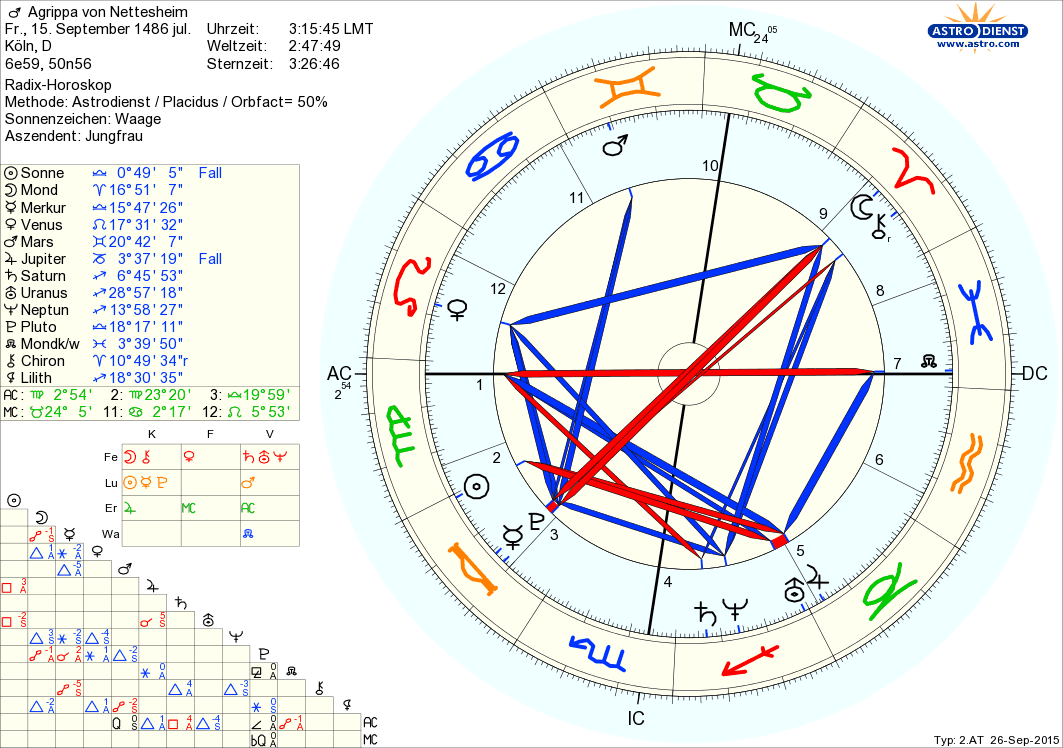
Horoskop von Agrippa von Nettesheim Astrologie
Heinrich Cornelius von Nettesheim was born at Nettesheim near Cologne, of which city (Colonia Agrippina in Latin) his father, Heinrich von Nettesheim, was a citizen. He adopted the name "Agrippa" and exaggerated the social status of his family. His father's occupation is unknown, but Agrippa's claims to aristocratic status have not been confirmed.

Cornelius Agrippa Famous Witches Witchcraft
The intellectual biography of Heinrich Cornelius Agrippa von Nettesheim (1486-1535) provides us with significant proof of a cultural crisis in the Renaissance.

Henricus Cornelius Agrippa von Nettesheim. Line engraving, 1
Note: Agrippa is difficult because he was a self-aggrandizing liar. I have relied primarily on Mauthner. Not Available and Not Consulted. Cornelius Agrippa von Nettesheim, De occulta philosophia libri tres, V. Perrone Compagni, ed. (Studies in the History of Christian Thoughts, 48), (Leiden, 1992). Compiled by: Richard S. Westfall
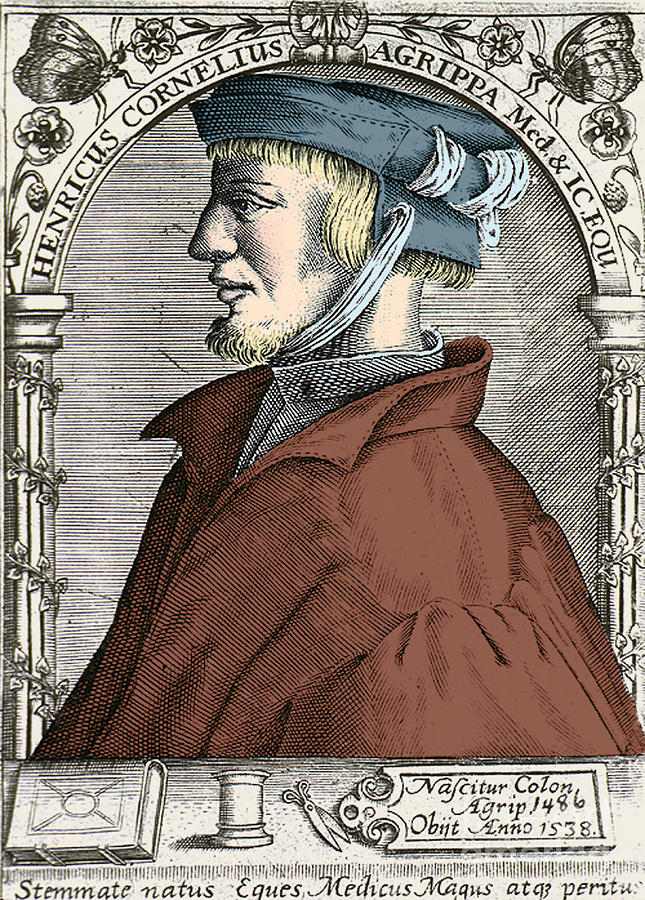
Heinrich Cornelius Agrippa, German Photograph by Science Source Fine
Henricus Cornelius Agrippa von Nettesheim, a colorful Renaissance figure — a diplomat, a military adventurer, a kabbalist, an expert on occult science, a medical doctor, a lawyer, a theologian, an early Reformer, as well as a troublesome and troubled intellectual — was born of minor nobility in or near Cologne.
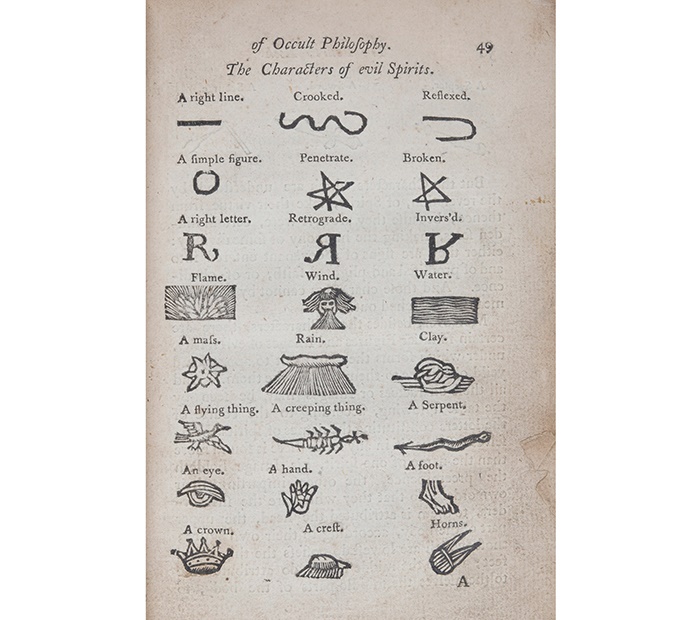
The Trevor Dawson Magic Collection Lyon & Turnbull
Agrippa von Nettesheim, Heinrich Cornelius, 1486-1535. Publication date 1533 Usage Public Domain Mark 1.0 Topics Occult, magick, sorcery, demonology, Kabbalah. Agrippa's interpretation of magic is similar to the authors Marsilio Ficino, Pico della Mirandola and Johann Reuchlin's synthesis of magic and religion and emphasize an exploration of.
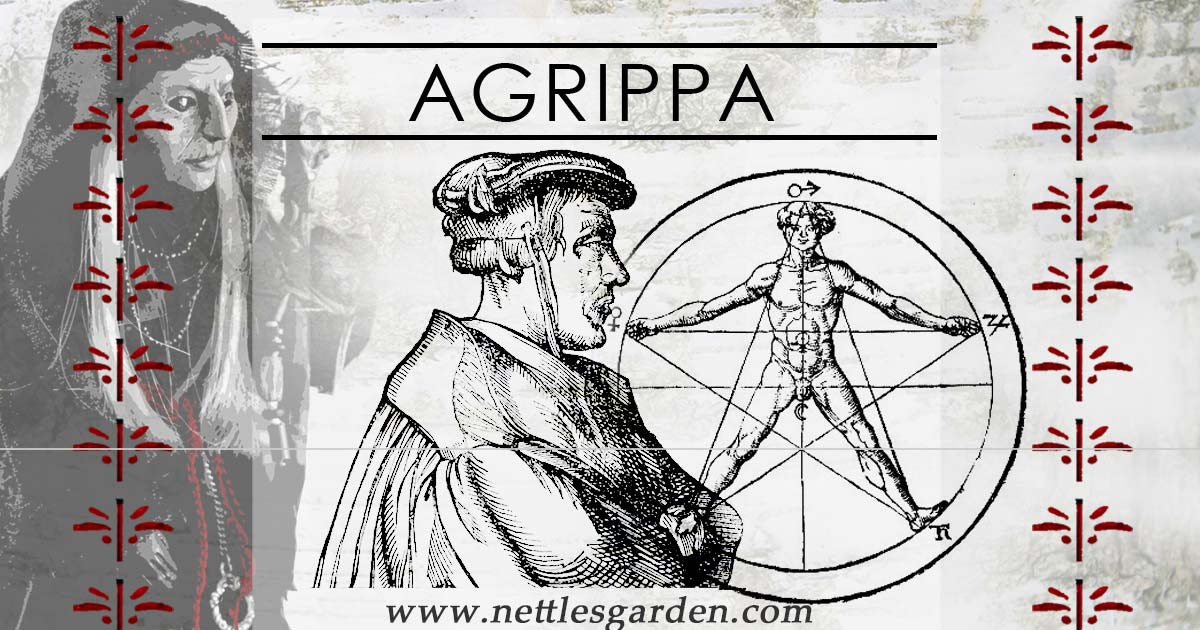
Cornelius Agrippa The Witch’s Advocate and Historical Faust Nettle
Agrippa von Nettesheim, born in Nettesheim near Cologne. Renaissance man, magician and often considered to be the historical Dr. Faust after his death in 18 February 1535 The Witch's Advocate, Cornelius Agrippa was on a mission to bind man back to the First Principle, God.

Agrippa von Nettesheim Portal Rheinische Geschichte
Agrippa was the main expounder of occult philosophy, i.e., the knowledge of the hidden properties of things that makes possible their manipulation by the techniques of magic, which is the highest form and the end of philosophy. His overall aim was to purify magic from its necromantic and irrational aspects, which would enable the deification of.

Mundus Mirabilis 07/25/12
Heinrich Cornelius Agrippa von Nettesheim (1486-1535) had two very different and contradictory identities. He was the author of the most comprehensive and most widely known book on magic and all occult arts, De occulta philosophia libri tres / Three Books of Occult Philosophy (henceforth cited as OP, followed by book and chapter number), but also the author of a sweeping attack on every.
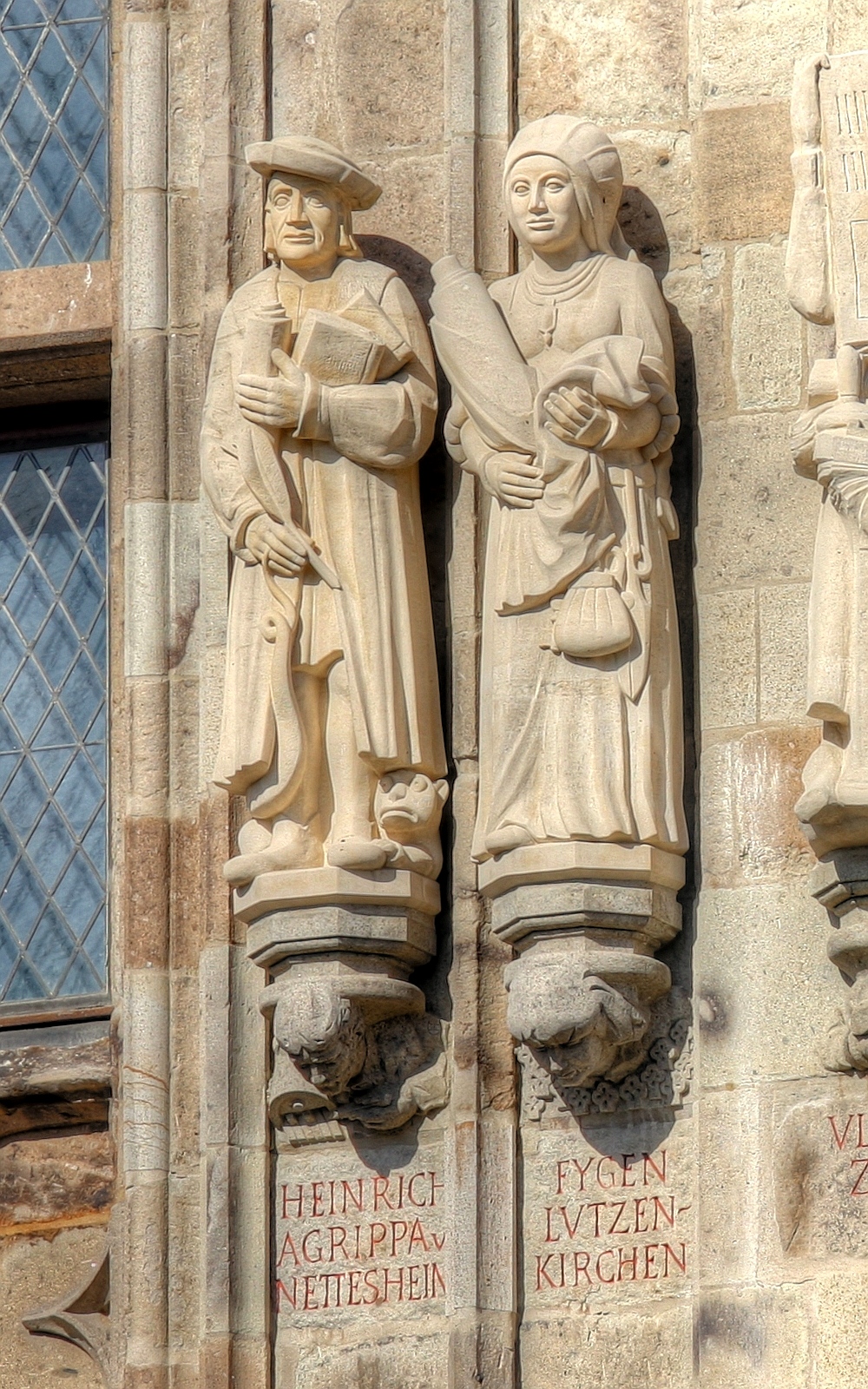
Cornelius Agrippa The Witch’s Advocate and Historical Faust Nettle
Heinrich Cornelius Agrippa von Nettesheim was a German Renaissance polymath, physician, legal scholar, soldier, knight, theologian, and occult writer. Agrippa's Three Books of Occult Philosophy published in 1533 drew heavily upon Kabbalah, Hermeticism, and neo-Platonism. His book was widely influential among esotericists of the early modern period, and was condemned as heretical by the.

CategoryHeinrich Cornelius Agrippa von Nettesheim Wikimedia Commons
also known as Agrippa von Nettesheim ( b. near Cologne, Germany, 14 September 1486; d. Grenoble, France, ca. 18 February 1535) magic, alchemy, philosophy, medicine. Agrippa's father, Heinrich von Nettesheim, was a citizen of Cologne; nothing is known of his mother.
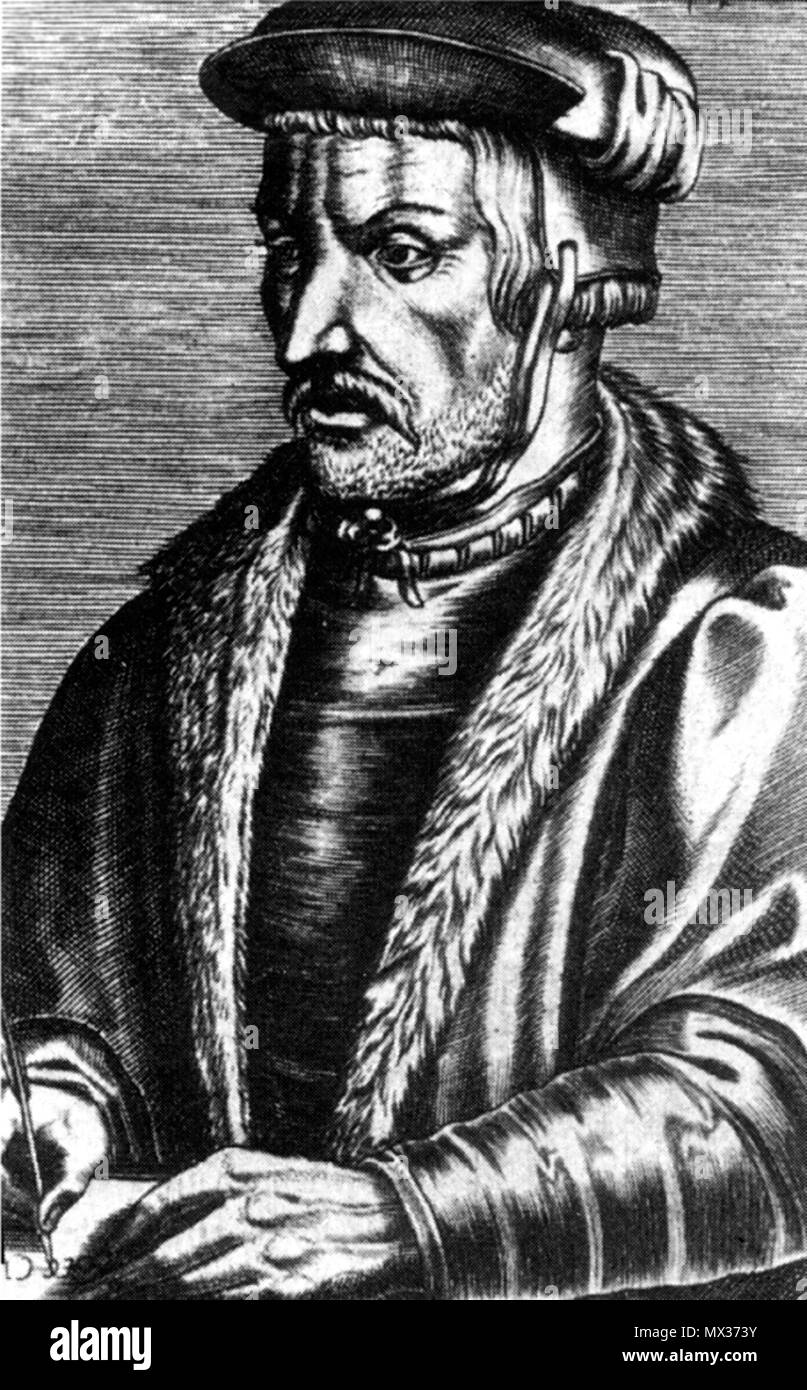
Heinrich cornelius agrippa von nettesheim hires stock photography and
Heinrich Cornelius Agrippa von Nettesheim Information Related objects Also known as Heinrich Cornelius Agrippa von Nettesheim primary name: Agrippa von Nettesheim, Heinrich Cornelius Details individual; author/poet; German; Male Life dates 1486-1535 Biography